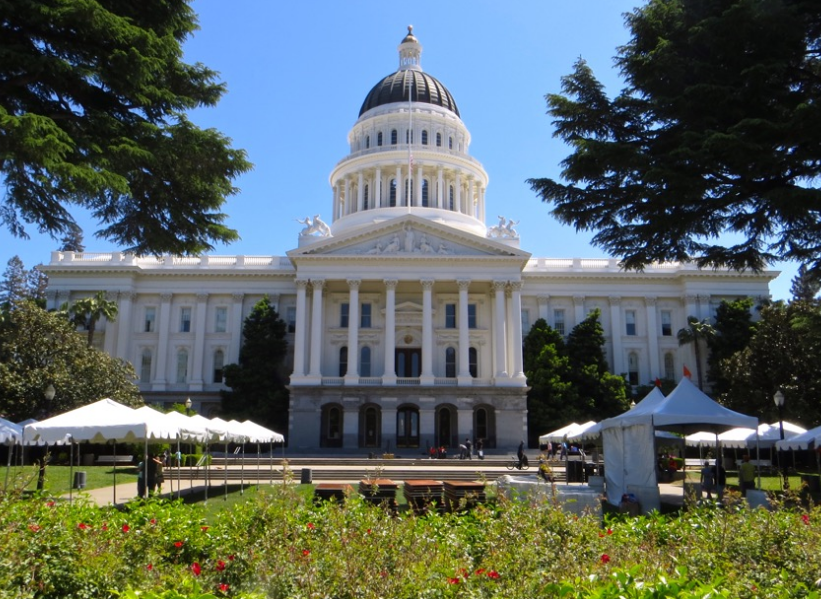California’s gaming world is on edge as a powerful alliance begs Governor Gavin Newsom to kill a bill that could wipe out sweepstakes casinos and cost the state a staggering $1 billion. This urgent plea highlights deep divides in the industry, with jobs, tribal economies, and digital fun hanging in the balance. What happens next could reshape entertainment and revenue in the Golden State.
Alliance Sounds Alarm on Bill’s Dangers
The Social Gaming Leadership Alliance (SGLA) has stepped up its fight against Assembly Bill 831, urging Governor Gavin Newsom to veto it before the October 12 deadline. The bill, which sailed through both legislative chambers without a single no vote, aims to ban dual-currency social games and sweepstakes casinos. If Newsom signs it or lets it pass without action, it becomes law on January 1, 2026.
This move could strip $1 billion from California’s economy right away, according to SGLA leaders. Jeff Duncan, the group’s executive director, called the Assembly’s decision disappointing. He pointed out how the ban would hurt economic growth, limit innovation in gaming tech, and take away a favorite pastime for many residents.
Smaller tribes have joined the outcry. Groups like the Kletsel Dehe Wintun Nation and the Sherwood Valley Rancheria of Pomo Indians fear the bill will widen gaps between richer and poorer tribal communities.
The SGLA formed earlier this year by merging with the Social and Promotional Gaming Association. It represents big players such as Virtual Gaming Worlds, ARB Interactive, PLAYSTUDIOS, and Yellow Social Interactive. Their focus stays on free-to-play options, responsible gaming, player protection, and keeping platforms age-restricted.

Economic Fallout and Job Risks Highlighted
Experts warn that banning sweepstakes could trigger massive job losses and shrink state revenue. The SGLA estimates the industry supports thousands of positions, from tech developers to customer service roles. Without it, California might fall behind in digital gaming advances, pushing innovation to other states.
A recent poll shared by the SGLA shows strong public backing for these games. An overwhelming 85% of Californians want social games to keep going, either as they are or with better rules and taxes. This data comes from a survey conducted this year, though exact details on the polling firm remain under wraps. It suggests voters see value in regulating rather than outlawing the sector.
Opponents argue the ban ignores potential tax windfalls. If regulated properly, sweepstakes could bring in steady income for the state, helping fund schools and services.
Duncan stressed the need for talks with Newsom’s office. He believes vetoing the bill opens doors for fair growth that benefits all tribes and boosts California’s tech edge.
Divisions Among Tribes and Industry Backers
Not everyone opposes AB 831. Strong support comes from larger groups like the Yuhaaviatam of San Manuel Nation and the California Nations Indian Gaming Association. They view sweepstakes as unfair competition that mimics real gambling without the same rules.
The Sports Betting Alliance also backs the bill, sponsored by Assembly Member Avelino Valencia. These supporters say it protects consumers and ensures gaming stays within legal bounds.
Smaller tribes, however, see it differently – as a threat to their economic survival. Without access to online sweepstakes, they might struggle more than wealthier counterparts who dominate traditional casinos.
This split shows the complex web of interests in California’s gaming landscape. The bill’s unanimous passage reflects broad legislative agreement, but the veto push reveals grassroots pushback.
The debate ties into bigger questions about online entertainment. As digital games grow, states grapple with how to balance fun, profit, and safety.
Path Forward and Broader Implications
If Newsom vetoes the bill, it could spark new discussions on regulating sweepstakes instead of banning them. The SGLA pushes for this approach, arguing it positions California as a leader in next-gen gaming while supporting disadvantaged communities.
History offers clues. Similar bans in states like New York and New Jersey have shifted players to unregulated offshore sites, cutting local revenue. California might avoid that pitfall with a veto.
The group’s four core principles guide their stance: keeping games free to play, promoting responsibility, safeguarding users, and enforcing age limits. These aim to make social gaming safe and accessible.
Looking ahead, the outcome affects everyday Californians who enjoy these platforms for low-stakes thrills. It also signals how the state handles emerging tech in entertainment.
As Governor Newsom weighs his choice on Assembly Bill 831, the stakes couldn’t be higher – a potential $1 billion economic hit looms if the sweepstakes ban takes hold, pitting innovation against regulation in a battle that could redefine California’s gaming future. This decision touches lives from tribal lands to urban homes, stirring debates on fairness and progress that demand attention.
Leave a Reply